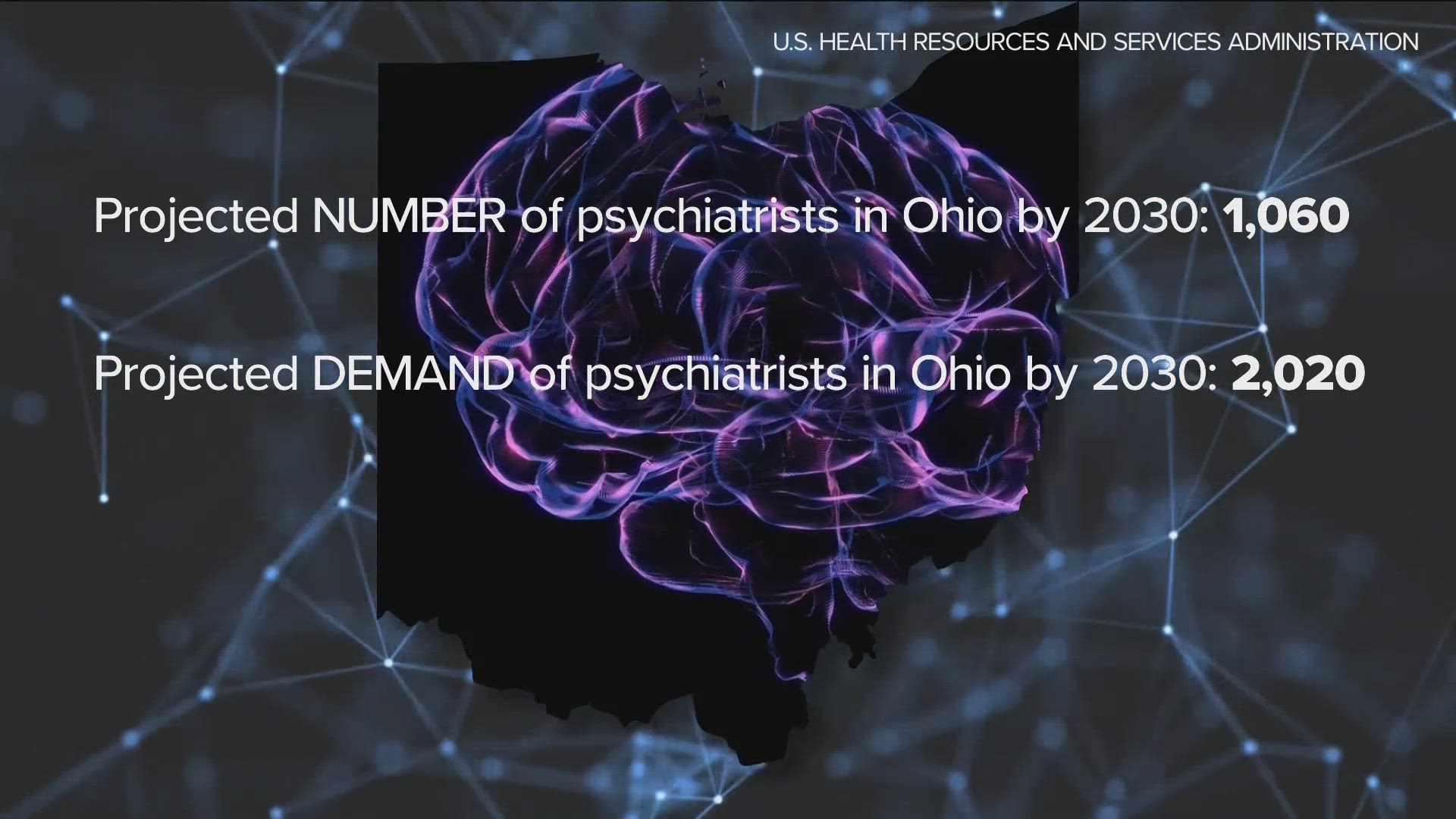TOLEDO, Ohio —
A shortage of mental healthcare workers is hitting part of the nation, including Ohio.
"Part of what's happening is older folks are retiring and there aren't enough new mental health care professionals coming up through the education system to replace them," Carolyn Tompsett, PhD, chair of Bowling Green State University's Psychology Department said.
Tompsett said this shortage in the state means longer wait times for mental health patients who need help immediately.
"By the time they make that first phone call, they're already in significant distress and then to be told that the earliest they can be seen is in three to six months," she said. "That's taking someone who's already been suffering for some time and asking them to prolong that time."
So just how pressing is this shortage in the Buckeye State?
The U.S. Health Resources and Services Administration predicts that by 2030, there will only be 1,060 psychiatrists statewide.
Based on demand, HRSA says there should be at least 2,020.
"All kinds of things will happen if people need health care and can't get it," Tompsett said.
But a new bill passed by the state Senate is now making its way through the House.
Ohio Senate Bill 60, introduced by Sen. Theresa Gavarone(R, Bowling Green), would create a new licensed health professional called a Certified Mental Health Assistant.
"The doctor does the prescribing, gets someone stabilized and then can refer that patient to the certified mental health assistant who can see them more regularly, more frequently," Gavarone explained.
She said the role would be like a physician's assistant, except they would specialize in mental health services.
She said fewer than 4% of physician's assistants work in psychiatry, so giving patients an additional option can help them get urgent treatment faster.
"They could get into this professional much quicker who can alert the doctor that you need to see this person, that there's something going on," Gavarone said.
If Senate Bill 60 passes the House, Gavarone said schooling for this career would be a two-year, 30 credit master's program focused on mental health.

